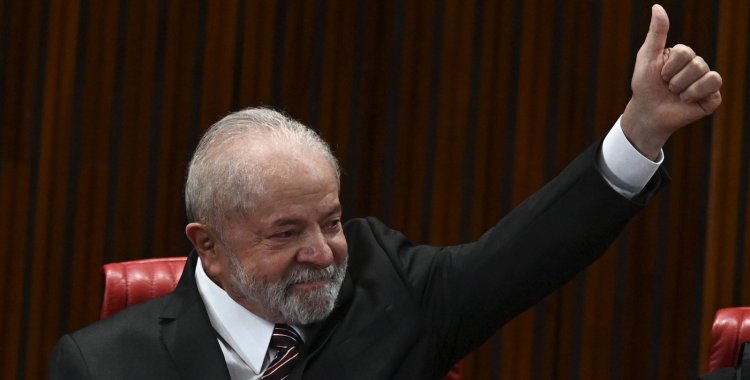Lula da Silva spoke about his trip to Africa in the second half of August, to participate in the summit of the BRICS (group of emerging countries that includes Brazil, Russia, India, China and South Africa), in the African country, and to participate, in São Tomé and Príncipe, at the XIV Conference of Heads of State and Government of the Community of Portuguese Speaking Countries (CPLP) and also an official trip to Angola.
The President underlined that "he should have already gone to Angola", but that Brazilian internal affairs prevented him.
"But now, after South Africa, I'm going to visit Angola and São Tomé and Príncipe", he stressed, noting that he had already been to Cape Verde, in a meeting with his Cape Verdean counterpart, José Maria Neves, which took place at the international airport of Praia during a stopover by Lula da Silva before returning to Brazil, after participating in the summit between the European Union and the Community of Latin American and Caribbean States (CELAC), in Brussels.
In addition, Lula da Silva also promised, this Wednesday, to support the Portuguese-speaking African Countries (PALOP) and the African continent in areas ranging from education, agriculture and technology.
"Brazil will again try to help, in whatever way possible, with technology transfer", university vacancies, open universities, medicine and agricultural and livestock knowledge, said the Brazilian President, when asked by the Lusa news agency, during a breakfast that the Brazilian head of state organized for the international press, at the Planalto Palace, in Brasília.
Lula da Silva, who underlined his intention to "visit many African countries", stressed that the country will have "an increase in vacancies" for Africans to study in Brazil and that he will "try to create open universities in some African countries in agreement with Brazilian universities".
The Brazilian Agricultural Research Corporation (Embrapa), which was once on the African continent, but which was dismantled, according to Lula da Silva, "after the coup" against Dilma Rousseff, may return to Africa.
"We are going to try to return Embrapa to the African continent so that Africa can have the same opportunity for growth that Brazil had", he said.
With regard to medicine, the Brazilian head of state gave the example of Mozambique and stressed that the country wants to "help in the production of medicines and improve the factory of antiretrovirals" in Mozambique.
In April 2012, the then vice-president of Brazil under Dilma Rousseff, Michel Temer, witnessed the start of Niverapine's packaging, storage, quality control and distribution operations at the antiretroviral factory, located in Matola, on the outskirts of Maputo, Mozambican capital.
The undertaking had the support of the Brazilian Government, which should disburse, until 2014, around 23 million dollars for the entire project.
The project, however, did not have the desired effect for Mozambique, with Lula da Silva, 11 years later, promising a new reinforcement.
"All of this is included in my commitments to the African continent", guaranteed the Brazilian President.
To reinforce his commitment to the African continent, the Brazilian head of state also said that, "if invited", he would attend the African Union meeting at the beginning of next year, which takes place in Addis Ababa, Ethiopia.
Lula da Silva also appealed to the rest of the world to invest in Africa again.
"As the African continent is a continent that, for better or worse, has been growing above the average of other countries, I think that the world has to invest again in the African continent", he underlined.
"Who knows, maybe Africa can produce green hydrogen, ethanol, biodiesel," he said.







